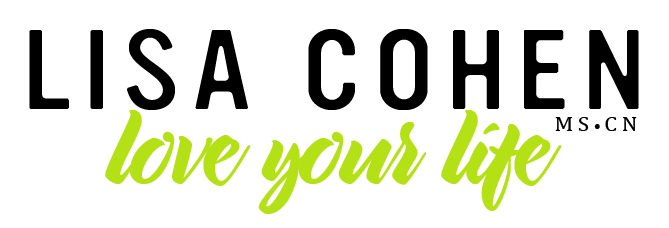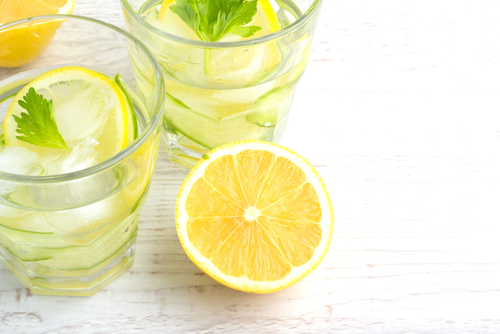Eating For Beauty
/When it comes to beautiful, radiant skin - "You are what you eat!”
As a matter of fact, your diet as a vital part of your healthy skincare routine, gaining a glowing complexion, and as an aid in slowing down the aging process.
What to Eat for Healthy Skin
There are so many signs and symptoms that tell us that the skin is not as healthy as it should be: dullness, dryness, redness, blemishes, etc.
Healthy skin is a reflection of internal health. There are many creams and cosmetics to put on top of your skin. But, there are also lots of things you can do to nurture and nourish your skin to better health from the inside.
How better to do this than with food?
Your skin needs many nutrients: water, essential fats, vitamins, and amino acids. Here are five foods (and drinks and lifestyle tips) I highly recommend if your goal is healthier-looking skin. As a bonus, I have included a short list of some key foods to consider avoiding.
Let’s dive in.
Skin Food #1 - Water
The skin is about 70% water, so it makes sense that we should keep our daily water intake high to maintain healthy skin. But beyond that, we need water for metabolism, nutrient absorption, elimination and circulation—all of which have a major impact on our skin.
My top picks for healthy hydration are filtered water (add fresh lemon, ginger, cucumbers and herbs for more of an antioxidant boost!) and herbal teas, especially green tea.
Skin Food #2 - Fish, especially wild salmon
Fish contains many nutrients important for skin health - omega-3s, and vitamins A and D to name a few.
Omega-3s are anti-inflammatory to help cool the flames of inflammation. Vitamin A can help with blemishes and dryness, while vitamin D helps with skin tone.
Skin Food #3 - Bell peppers, citrus fruits, and broccoli
Collagen is one of the most abundant proteins in our body. It’s also known to help our skin stay firm and supple.
Vitamin C is necessary for your body to make collagen. So foods rich in vitamin C are great for your skin. Cue: bell peppers, citrus, and broccoli.
NUTRITION FACT: Overcooking vitamin C-rich foods can destroy some of the skin-supporting vitamins. So, try having these lightly steamed or raw for maximum vitamin C levels.
Skin Food #4 - Bone broth
Homemade bone broth contains a lot of the amino acid glycine. Glycine is another essential component of the skin protein collagen.
Glycine helps speed the healing of the skin and the gut. Win-win.
Skin “Food” #5 - Sleep more & stress less
I know these aren’t exactly foods, but they’re an important part of naturally great skin. When we don’t sleep enough, or stress too much our body flips on systems that affect our whole body… including our skin.
Stress hormones can increase inflammation and lead to not-so-healthy looking skin. Prioritize sleep and stress management, and you can see results in your life, and in your skin.
Watch out for these foods
Some foods are allergenic or inflammatory. These can cause all sorts of issues in your body, including affecting your skin.
It's hard to come up with one list of inflammatory or allergenic foods for everyone. Each person is biochemically unique, so you may have to go through this and see what applies to you. There are a few common allergens that may be a good bet to eliminate from your diet.
The first is processed foods. These are pretty much not-so-good for everyone. And they can affect your health in so many ways, including how your skin looks & feels. Try ditching pre-packaged and fast foods in favour of whole foods as much as possible. Not just for your skin, for your whole body (and mind).
The second is gluten. While only a small number of people have serious reactions to gluten (i.e., celiac disease), many more people are intolerant to it. Gluten is a protein found in wheat, barley, rye and a few other grains. Many people have had several health concerns, including skin issues, clear up after eliminating gluten from their diets.
Third in line is dairy. It could be a hormonal response or even an insulin response. We don't quite know why, but many people who cut out dairy report better skin.
Conclusion
Skin health is not just about what you put on your skin, but what your skin gets from the inside too. There are lots of important nutrients and foods to help support healthy skin. Which also means, that there are lots of foods that can affect your skin in negative ways as well.
Hydrating, eating nutrient dense whole foods, and avoiding common allergenic and inflammatory foods might make all the difference for you.
Do you have an awesome recipe or tips for people to eat more of these “skin-healthifying” foods? Let me know in the comments below.
Recipe (Omega-3 vitamin C rich) Salmon Salad with Lemon Vinaigrette
Salmon Salad Serves 2
6 - 8 ounce salmon filet
sea salt and pepper
fresh lemon juice
4 cups baby spinach, arugula, mixed greens
1 bell pepper, chopped
1 cup cherry tomatoes
½ large cucumber, chopped
Lemon Vinaigrette
⅔ cup olive oil
⅓ cup fresh lemon juice
Kosher salt, freshly ground pepper
Whisk oil and lemon juice in a small bowl or shake in a resealable jar to emulsify; season with salt and pepper.
Instructions:
Season the salmon with salt and pepper and bake in 350 degree oven for 20-30 minutes.
Prepare the lemon vinagrette
Remove the salmon from the oven and add a squeeze of fresh lemon
Place 2 cups of greens into each of 2 bowls. Top with veggies and salmon and a drizzle of dressing.
Serve & enjoy!
Tip: Serve with a large mug of green tea for an extra skin-supporting bonus.
References:
https://www.thepaleomom.com/beautiful-skin/
https://www.thepaleomom.com/overcoming-medical-dogma-eczema/
https://www.precisionnutrition.com/all-about-acne-nutrition
https://www.healthline.com/health/4-best-vitamins-for-skin#VitaminD2
https://chriskresser.com/nutrition-for-healthy-skin-part-1/
https://www.healthline.com/health/ways-to-boost-collagen
https://www.healthline.com/nutrition/collagen



